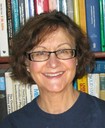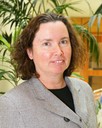New inductees join 43 previously named Rutgers fellows of the American Association for the Advancement of Science
NEW BRUNSWICK, N.J. – Six Rutgers professors are among 503 scholars that the American Association for the Advancement of Science (AAAS) has elevated to the rank of fellow. The pre-eminent national scientific organization selects fellows based on their efforts in advancing science or fostering applications considered scientifically or socially distinguished.Joining 43 previous Rutgers fellows, the new inductees will receive an official certificate and a gold and blue rosette pin Saturday, Feb. 19, at the AAAS Fellows Forum during the 2011 AAAS Annual Meeting in Washington, D.C.
The new Rutgers AAAS fellows are:
Eva Y. Andrei, Department of Physics and Astronomy, School of Arts and Sciences

The association cited Andrei “for profound low-temperature experiments ranging from Wigner crystallization of electrons to Dirac fermions in graphene.”
Karl F. Nordstrom, Institute of Marine and Coastal Sciences, School of Environmental and Biological Sciences

The association cited Nordstrom “for distinguished contributions to the fields of coastal and Aeolian geomorphology, especially for trend setting research concerning the dynamics and management of human-altered systems.”
Karin M. Rabe, Department of Physics and Astronomy, School of Arts and Sciences

The association cited Rabe “for fundamental contributions to the development and application of theoretical and computational methods for the study of structural phase transitions in solids.”
Barbara J. Turpin, Department of Environmental Sciences, School of Environmental and Biological Sciences

The association cited Turpin “for major contributions to our basic knowledge of the properties and effects of organic aerosols.”
Eileen White, The Cancer Institute of New Jersey (CINJ), UMDNJ-Robert Wood Johnson Medical School, and Department of Molecular Biology and Biochemistry, School of Arts and Sciences, Rutgers University.

The association cited White “for distinguished contributions to the field of cancer research through elucidating mechanisms of cell death and survival regulation and as associate director of CINJ.”
Chung S. Yang, Department of Chemical Biology, Ernest Mario School of Pharmacy

The association cited Yang “for distinguished contributions to the field of pharmaceutical and biomedical sciences by studying cytochrome P450 enzymes, drug metabolism, toxicity, mechanisms of carcinogenesis and cancer prevention.”
About the AAAS
Founded in 1848, the AAAS is the world’s largest general scientific society and works to advance science for human well-being through its projects, programs and publications. The tradition of selecting AAAS fellows began in 1874.
AAAS includes 262 affiliated societies and academies of science, serving 10 million individuals. The association conducts many programs in the areas of science policy, science education and international scientific cooperation. Its prestigious peer reviewed journal Science has the largest paid circulation of any peer-reviewed general science journal in the world, with an estimated readership of 1 million.
Media Contact: Carl Blesch
732-932-7084 x616
E-mail: cblesch@ur.rutgers.edu